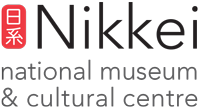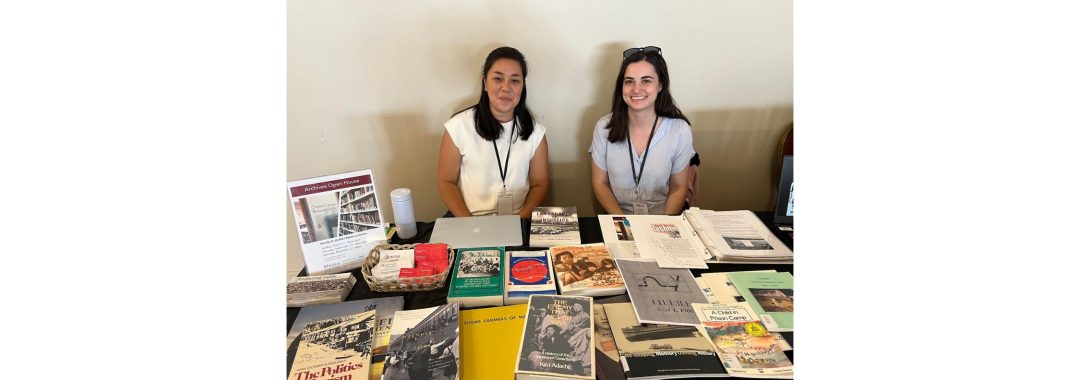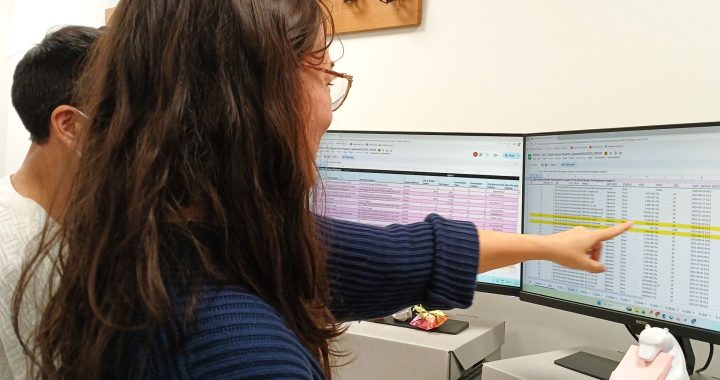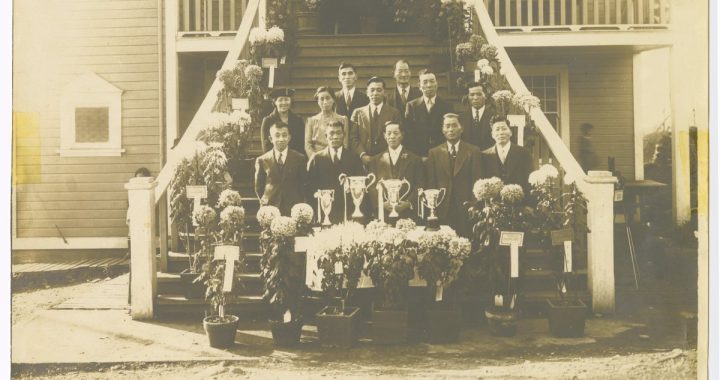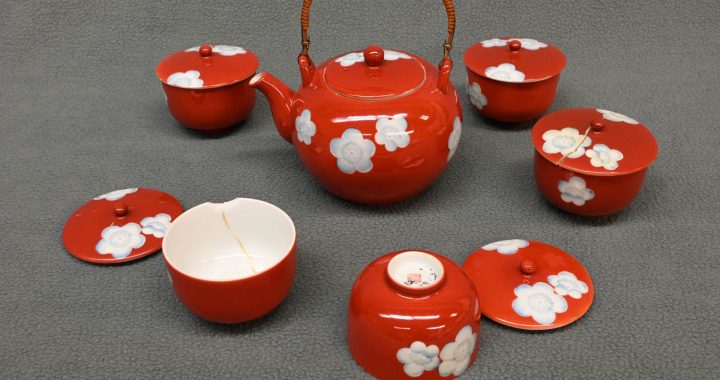On August 17, 2024, the Japanese Canadian community was invited to ensoku 2024, an intergenerational gathering and Obon ceremony at the former Tashme internment camp.
Organized by Kikiai Collaborative, the event included an Obon ceremony and Bon Odori dancing, taiko performances by Leslie Komori and Aki Watanabe, readings by yonsei Japanese Canadian poets and playwrights of The Tashme Project, family history resources, and a chance to visit the grounds and buildings of the Sunshine Valley Tashme Museum.
The full day event welcomed over 100 participants from around the world, with people visiting from British Columbia, Ontario, Alberta, Chicago, Washington, and even Japan. This marked the first time an Obon ceremony had taken place at the site since the Tashme internment camp’s closure in 1946.
Further activities were also offered on the following day to the wider public, with additional programming by the Sunshine Valley Tashme Museum, a screening of Henry’s Glasses, and another reading of The Tashme Project.
Kikiai Collaborative is a grassroots network based in Greater Vancouver that connects Japanese Canadian and Nikkei folks through arts and culture, politics, history and more. This is the third ensoku event they have hosted for the community, with previous events held in 2019 and 2023.
Media links: https://www.hopestandard.com/local-news/obon-ceremony-at-sunshine-valley-a-great-success-7492669
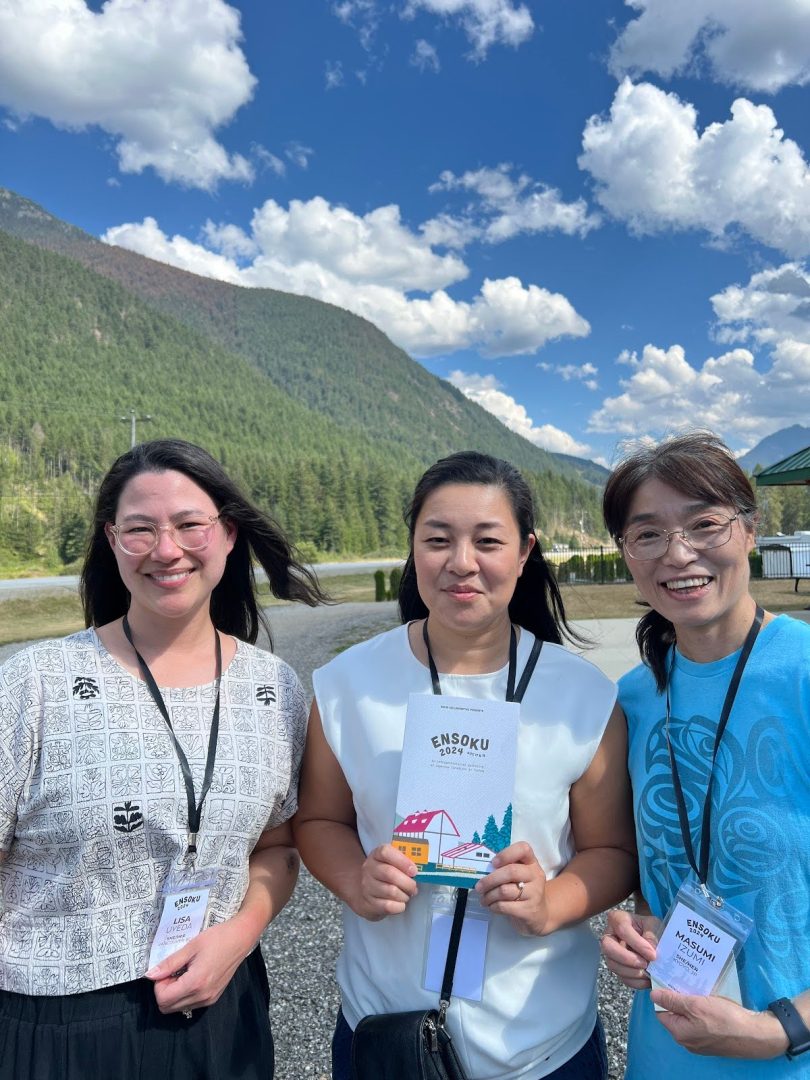
Three members of the PWFC Project’s Archives Cluster were able to meet at ensoku 2024 in Tashme, BC. From left to right: Lisa Uyeda, Tomoko Shida, Masumi Izumi. (Image credit: Masumi Izumi)
Ask an Archivist Booth at ensoku 2024
Processing & Outreach Archivist Sam Frederick from the Nikkei National Museum & Cultural Centre (NNMCC) and Archivist Tomoko Shida from the Past Wrongs, Future Choices (PWFC) project were invited to take part in ensoku 2024 with an “Ask an Archivist” booth in the registrants-only hall where the afternoon activities took place.
The purpose of the booth was to bring family history and heritage resources to the participants who came from communities all across the country and beyond. During the pockets of free time before and after the formal programming, participants could browse the books and other resources, and ask archivists about how to locate information about their families and other Japanese Canadian communities across the country.
NNMCC & Sam’s Reflections
The NNMCC has many records relating to Tashme and other internment camps in our archives so we brought a selection to share with the event’s participants. On display, we had books from our reference library, lists of those living in the internment camps, and a slideshow of archival photographs of grade school classes, ceremonies, and life in Tashme in the 1940s, all materials that are accessible through our archives.
We heard from many people at our booth who were interested in learning more about their family’s history and some who recognized those in the photographs on display. I shared the contact information for our NNMCC Collections & Archives Team and explained how to get started with research at our archives and some available research resources. We’re looking forward to getting in touch with folks to continue this exploration and in helping them discover more about their families.
It was very touching to have had the chance to bring the archives into this real lived space that has impacted so many of those attending this event. These connections between past and present underscore the importance of the archives and of the need to continue these conversations with families and survivors to keep this history available and accessible.
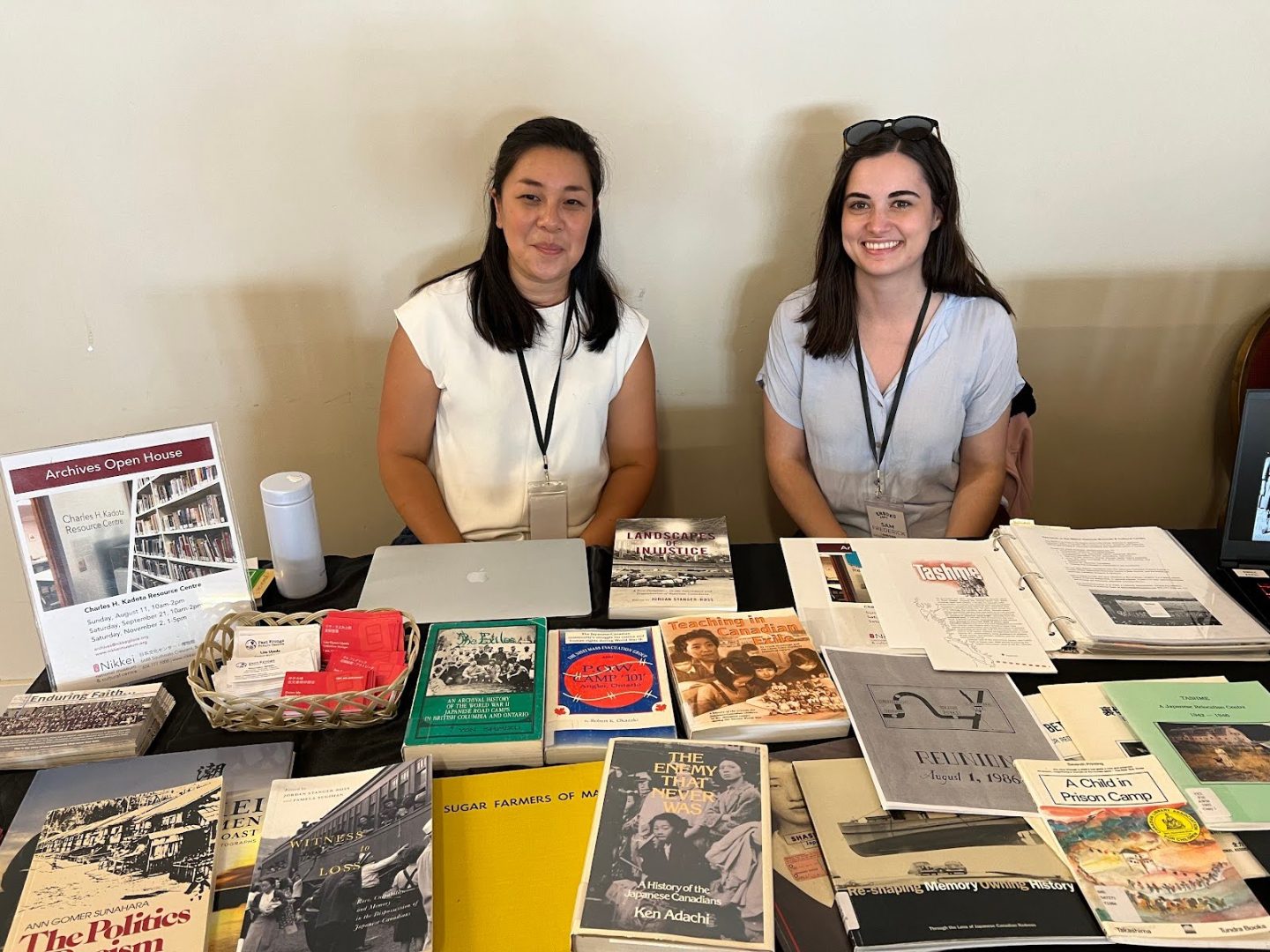
Tomoko Shida from the PWFC Project and Sam Frederick from the Nikkei National Museum & Cultural Centre at the Ask an Archivist Booth. (Image credit: Masumi Izumi).
PWFC & Tomoko’s Reflections
On the PWFC side, I was hoping to provide one-on-one demonstrations of how to navigate the Landscapes of Injustice Research Database (https://loi.uvic.ca/archive/), and to provide assistance in interpreting records. Unfortunately, due to the remote location between the large mountains, we could not get an internet connection strong enough for the database to work. Despite this, we were able to introduce the LOI resources to a number of ensoku 2024 participants.
Some elders stopped by to browse the books at our booth, some of whom honoured us with stories of who and what they remembered from their childhood during the Internment Era. I was in turn able to tell them about the database and how it might help them fill in some of the gaps. A couple of these elders then brought their younger or more tech-savvy relatives so that I could explain the database to them. Some younger participants also stopped by who were excited to learn about the existence of the database, including one who had come with her baachan. I hope that in the weeks following ensoku 2024, these families will have the chance to sit down to explore the database together.
Working virtually from home for the PWFC project, it is easy to forget that there are still many who don’t know about the database. Having the opportunity to set up a booth at an intergenerational event such as ensoku 2024 was a reminder to myself about the continued importance of in-person spaces for connecting our elders with the now digital records about them and their history.
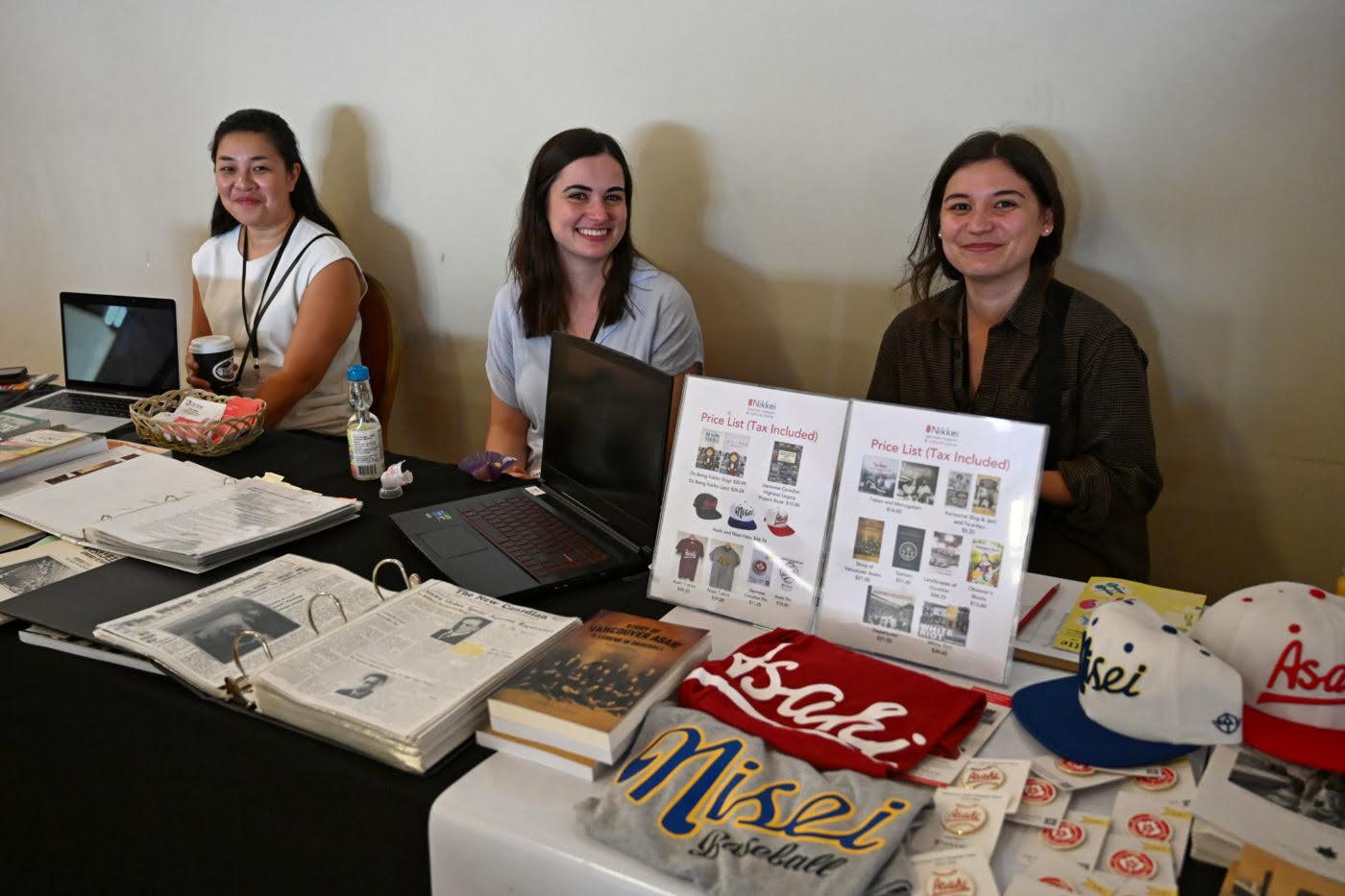
Tomoko Shida and Sam Frederick at the Ask an Archivist Booth, alongside Nikkei National Museum & Cultural Centre’s Danielle Jette with NNMCC books and merchandise. (Image credit: Paul Jette)
Contact us!
For more information or to make a research appointment at the Nikkei National Museum & Cultural Museum, contact the NNMCC Collections & Archives Team at [email protected] or 604-777-7000 ext. 111. Browse archival records from the NNMCC’s collection on our database at www.nikkeimuseum.org.
If you are a Japanese Canadian group planning an event in 2025, please reach out to the PWFC Archives Cluster at [email protected]. We would love to bring our travelling Ask an Archivist booth to your community!
Visit kikiai.ca to learn more about Kikiai Collaborative.
